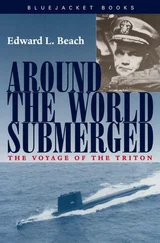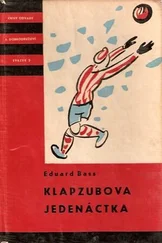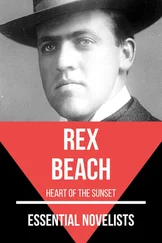Edward Beach - An Annapolis First Classman
Здесь есть возможность читать онлайн «Edward Beach - An Annapolis First Classman» — ознакомительный отрывок электронной книги совершенно бесплатно, а после прочтения отрывка купить полную версию. В некоторых случаях можно слушать аудио, скачать через торрент в формате fb2 и присутствует краткое содержание. Жанр: foreign_antique, foreign_prose, foreign_children, на английском языке. Описание произведения, (предисловие) а так же отзывы посетителей доступны на портале библиотеки ЛибКат.
- Название:An Annapolis First Classman
- Автор:
- Жанр:
- Год:неизвестен
- ISBN:нет данных
- Рейтинг книги:5 / 5. Голосов: 1
-
Избранное:Добавить в избранное
- Отзывы:
-
Ваша оценка:
- 100
- 1
- 2
- 3
- 4
- 5
An Annapolis First Classman: краткое содержание, описание и аннотация
Предлагаем к чтению аннотацию, описание, краткое содержание или предисловие (зависит от того, что написал сам автор книги «An Annapolis First Classman»). Если вы не нашли необходимую информацию о книге — напишите в комментариях, мы постараемся отыскать её.
An Annapolis First Classman — читать онлайн ознакомительный отрывок
Ниже представлен текст книги, разбитый по страницам. Система сохранения места последней прочитанной страницы, позволяет с удобством читать онлайн бесплатно книгу «An Annapolis First Classman», без необходимости каждый раз заново искать на чём Вы остановились. Поставьте закладку, и сможете в любой момент перейти на страницу, на которой закончили чтение.
Интервал:
Закладка:
Stonewell was delighted. "By George," he said, "that's great! We'll work that on Franklin Field, and we'll certainly make the 'Army blue.' We'll try it to-morrow afternoon. I'll let only the first team know of it and get your required promise from them, and we'll work it on the unsuspecting second team; we'll have everybody, officers and all, kept away."
"Secret practice" for the football squad was ordered for the next day; at the beginning of the practice the first and second teams were ordered at first to keep in different parts of the field.
"What's up?" queried Harry Blunt, the ambitious quarter-back of the second team, to a group of players about him. "One would think the Only Stonewell had something up his sleeve. Come along, fellows; if we keep up our work of yesterday this team will be the first team before long."
After half an hour's practice the two teams were called together for a scrimmage. Bucking the line, running around the ends and punting were employed until the ball was fifteen yards from the second team's goal and in the possession of the first team. Then quarter-back Bligh gave the regular signal for a goal from the field. The second team knew, of course, the first team's signals, but it did not know that an apparent stumbling in the numbers he called out was a signal that the Gates forward pass was now to be played.
The first team players took their places for a goal from the field, Stonewell, as usual, dropping back, and before the second team players knew what had happened Robert Drake was sitting on the ball between the goal posts.
Everybody was crazy with delight. One would have imagined West Point had been scored upon. The play had worked perfectly. The squad was now all gathered together and was talked to by Gates and Stonewell; it was evident that Gates was well satisfied that his confidence in the midshipmen was not misplaced.
In the next few weeks this play was repeatedly practiced, and Gates was satisfied that if the midshipmen had the opportunity they would play it successfully on the day of the great West Point game.
It was Stonewell's purpose to develop the team as a whole, not individual star players. As right end Robert became famous among midshipmen for getting down the field promptly under kicks, and for tackling and downing in his tracks the opposing player who caught the ball. The two finds of the season were Bligh and Farnum. The former knew the game and played with intelligent skill. As quarter-back his position was most important and at different critical moments he ran the team with unerring judgment.
Farnum played with desperate valor. His tackling was fierce, and in running with the ball and interfering when one of his own side had it he took every chance. His impetuosity brought him into prominence as a sure ground gainer. In close places the ball was generally given to Stonewell. There was something peculiarly invigorating in Stonewell's personality. When his signal was made there was a penetrating intensity that affected every Annapolis player. The danger was in working him too much.
One Saturday early in November, Annapolis was matched against Bucknell. Bucknell had always been a formidable antagonist of the midshipmen; the year previous it had defeated them. Up to now Annapolis had not lost a game, and the midshipmen were particularly anxious to defeat Bucknell, which on this occasion had brought a stalwart lot of players. They were strong, heavy, and confident. Before the game Stonewell called Farnum aside and said: "Now, old chap, be a little careful of yourself. You are bound to get badly hurt at the rate you are going, and we want you to save yourself for the West Point game. You're going to be given the ball a good deal to-day; Bob Drake is a bit stale, and my knee is bothering me. Now look out for yourself."
"I'll try to remember, Stone," was the reply; "but when I get started I'm not apt to think of anything but the game. But I'll try to be careful."
Bucknell kicked off and Drake caught the ball. He was down the field with a tremendous start, dodging one player, smashing by another, making twenty-five yards before he was downed.
Bligh believed in quick action. The Annapolis team was lined up immediately and in a second the ball was in play. Farnum banged through the line between guard and tackle, making over fifteen yards for Annapolis.
"Take it easy, Farnum," cautioned Stonewell. In an instant Farnum had the ball again and was around the end and speeding for Bucknell's goal. Ten yards before he got there he was brought to earth with terrific violence, and he lay there still and limp.
On the side lines, leading the cheering, Glassfell was executing all kinds of crazy antics; the midshipmen on the bleachers, full of joy, shouted themselves hoarse. But poor Farnum lay there unheeded, entirely unconscious. And in vain did the appreciative midshipmen shout: "Farnum! Farnum! Farnum!" for that young man was carried off the field on a stretcher without regaining consciousness.
Two more plays, Stonewell carrying the ball, brought a touch-down to Annapolis and Stonewell kicked a goal. This was the only scoring done during the game. In vain did each team hurl itself against the other; all for nothing did prodigies of violence occur. When time was finally called the score stood Annapolis 6, Bucknell 0.
And then thoughts turned to Farnum, now in the Academy sick quarters. When questioned Surgeon Pickron looked grave and said, "Mr. Farnum has had a terrible blow on the head – he has had many recurring spasms ever since – I regard his condition as very serious."
Such news travels fast, and on Saturday night the whole Academy, officers and midshipmen, were much perturbed. Sunday brought no change for the better and Surgeon Pickron advised an operation. Farnum had not regained consciousness. Surgeon Welton, who was in command of the hospital, insisted on delaying, against Dr. Pickron's advice, and on Monday morning everybody was much cheered up by hearing that Farnum's spasms had ceased and that he had come to himself. It was decided not to perform the operation, though Dr. Pickron believed that a clot of blood had formed and that Farnum's skull should be trephined.
From now on Farnum continued to improve and in two weeks he was discharged from sick quarters and sent back to Bancroft Hall, though it was ordered that he was to play no more football. But it was not the same Farnum. In place of the cheery, wideawake youth who had battled so valiantly against Bucknell, was a slow-moving, hesitating young man. He seemed afraid. The slightest unexpected noise or untoward incident seemed to startle him, sometimes to frighten him badly. "I can't help it, Bob," he said one time, with half a laugh and half a sob; "it's my nerves, I suppose; I'm sure there's something wrong with me; I know I'm acting like a baby, and I guess it will pass after a while; but I can't help it, I can't help it," and then Farnum broke down.
Stonewell, Robert and some of the others had long talks with him. They were all drawn to him and were much concerned. One of Farnum's peculiarities was that he didn't dare to go out at night. The entire first class were now devoted to him. His popularity had come late in his midshipman career, but it was now strong and abiding. And his sufferings were so acute and so constant that he had the warm sympathy of all.
And Academy life went on apace, and Academy life at this period of the year is mostly concerned with football. True, there are study hours and recitations; long hard lessons must be read over and officers must hear recitations; formations must be attended, drills undergone, and examinations prepared for. This football spirit infected the officers as it did midshipmen. Football was the one topic of conversation, the one purpose in life during this epoch, and those that didn't play shouted vociferous advice, admonition and encouragement from the bleachers.
Читать дальшеИнтервал:
Закладка:
Похожие книги на «An Annapolis First Classman»
Представляем Вашему вниманию похожие книги на «An Annapolis First Classman» списком для выбора. Мы отобрали схожую по названию и смыслу литературу в надежде предоставить читателям больше вариантов отыскать новые, интересные, ещё непрочитанные произведения.
Обсуждение, отзывы о книге «An Annapolis First Classman» и просто собственные мнения читателей. Оставьте ваши комментарии, напишите, что Вы думаете о произведении, его смысле или главных героях. Укажите что конкретно понравилось, а что нет, и почему Вы так считаете.












